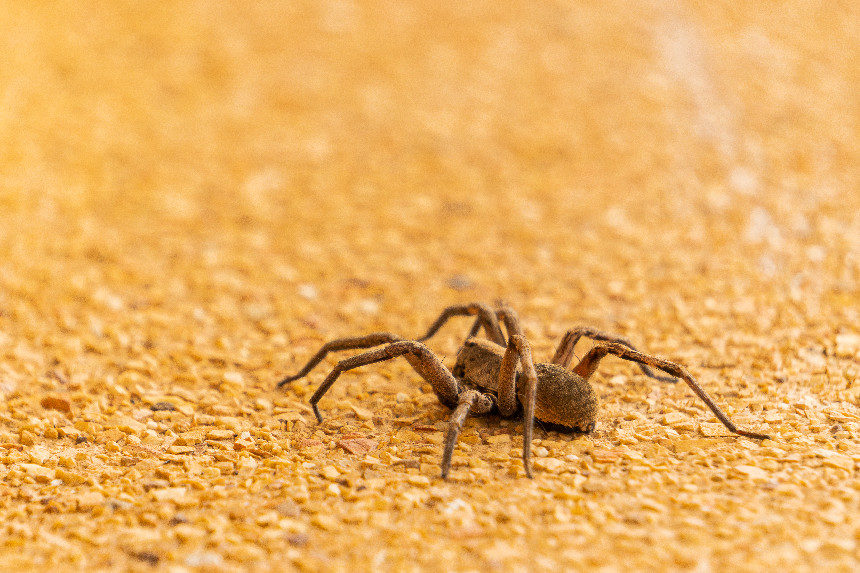In April 2005, Chad Cook bought a home in Anderson, Indiana, and moved in with his pregnant wife and their 1- and 3-year-old children. While Cook noticed spiders during his initial inspection, he assumed they were ordinary household spiders. By August, he began to suspect they were dangerous brown recluse spiders. Experts at Purdue University confirmed his suspicion in September and advised Cook to immediately move his family out of the home.
That month, Cook contacted his insurer, Allstate, requesting coverage — a request he continued to make by telephone and in person over the next eight months, to no avail.
In the meantime, Cook had the home treated by pest control professionals. In December 2005, he moved his family back into the house but, finding more spiders, moved out again the next week. Thereafter, Cook hired various professional exterminators to treat his home, but the brown recluse problem persisted.
On June 23, 2006, Allstate finally responded to Cook’s claim. In the letter, the company denied coverage based on Allstate’s exclusion for losses “consisting of or caused by … insects, rodents, birds, or domestic animals.”
Cook filed suit against Allstate seeking coverage under Allstate’s Deluxe Homeowners Policy for an infestation of brown recluse spiders at his home. Cook claimed that Allstate’s “insect” exclusion did not apply because spiders are not insects, but belong to a class of animals known as arachnids. He cited encyclopedias, a dictionary, and scientific articles to establish that spiders are not insects. For example, spiders have two main body parts; insects have three. Spiders have eight legs; insects have six.
In response, Allstate quoted one Merriam-Webster definition of insects as “any of numerous small invertebrate animals (such as spiders or centipedes) that are more or less obviously segmented.” Allstate also argued that an infestation of brown recluse spiders was not covered under the policy because there was no “sudden and accidental direct physical loss” to the property; in short, no event or disaster caused damage to the home.
How Would You Rule?
In its decision, the court cited Indiana case law establishing that if any ambiguity exists in a policy term, and particularly in an exclusion, the term must be interpreted in favor of the policyholder and ruled that spiders were not excluded and should be covered by Allstate.
The court further found that a physical condition that renders property unsuitable for its intended use constitutes a “direct physical loss” even when the building’s structural integrity remains. “Brown recluse spiders living, breeding, and hunting on and within surfaces of the home are a physical condition that renders the home unsuitable for its intended use. The undisputed evidence is that the brown recluse spiders make it unsafe for Cook and his very young children to live in the home.” The Court entered a partial summary judgment in favor of Cook, but Allstate settled the suit before trial.
—Cook v. Allstate 2007
Addendum: Across the nation, companies are filing insurance claims for business interruption losses due to government-mandated closure of nonessential businesses because of the COVID-19 pandemic. The insurance industry is denying these damage claims because businesses have not suffered any “direct physical loss,” such as from a fire or flood. Businesses are fighting back in court, arguing that the presence of a contaminant — whether a chemical agent or a contagion such as COVID-19 that can survive on doorknobs, faucets, phones, toilets, and other surfaces in buildings — constitutes direct physical loss or damage to the property, triggering business interruption coverage.
This article is featured in the July/August 2020 issue of The Saturday Evening Post. Subscribe to the magazine for more art, inspiring stories, fiction, humor, and features from our archives.
Featured image: Shutterstock
Become a Saturday Evening Post member and enjoy unlimited access. Subscribe now




Comments
Mr. Cook and his family were basically forced out of their new home by the threat the dangerous brown reclusive spiders posed. He made repeated calls to Allstate to no avail for months. He also had the home treated by pest control and felt safe enough (at first) to move back in, but then had to quickly move out again per their return.
Allstate tried to get out of any responsibility, even with the Deluxe Homeowner’s Policy for the reasons stated in that, and the following paragraph.
I agree with the court, and its decision for the plaintiff per Indiana case law for the reasons stated in both paragraphs. I don’t know how much money Cook was awarded, but hopefully it was a considerable sum. Mr. Cook was out a lot of money paying the mortgage on a house unlivable for over a year, plus the cost of other living quarters during that time. There’s also the invisible mental and emotional tolls of stress caused by the ordeal. I hope whatever amount Allstate paid Mr. Cook helped him feel he was finally in some good hands after all.